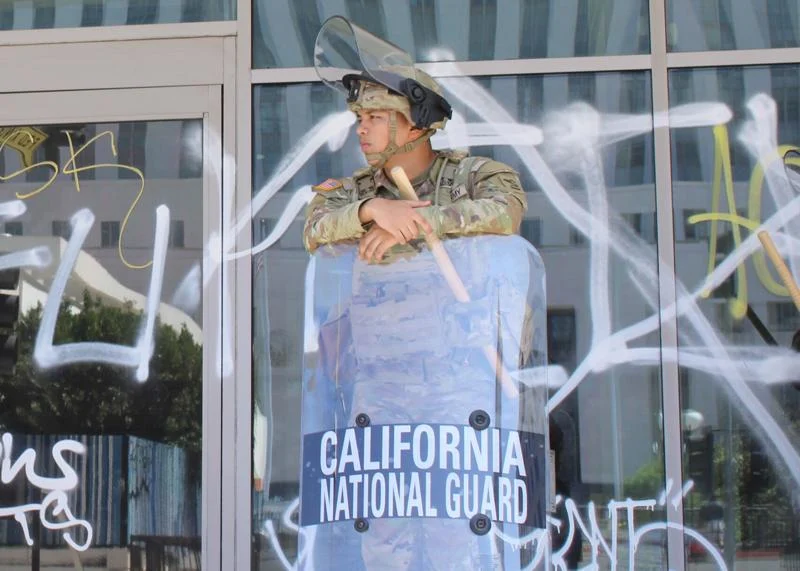A federal judge was wrong to second-guess President Donald Trump’s federalization of the California National Guard, attorney Brett Schumate argued Tuesday before the U.S. Court of Appeals for the 9th Circuit.
Schumate, an assistant attorney general, made the argument during an appeal of last week’s U.S. District Court for Northern California’s ruling transferring control of the guard back to Gov. Gavin Newsom. The Trump administration immediately appealed, and the 9th Circuit put a temporary stay on the ruling until justices rule on the appeal.
According to media reports, Shumate argued in the 9th Circuit’s San Francisco courtroom that U.S. District Court Judge Charles Breyer, a Biden appointee, improperly second-guessed the president’s judgment on protecting federal property and personnel and that courts had no role in reviewing the decision. Shumate contended Trump had the authority to call in the National Guard and cited Martin v. Mott, a U.S. Supreme Court case that allows presidents, not governors or a federal court, to make such decisions.
The counterargument came from Samuel Harbourt, a deputy solictor general representing California in its effort to retake control of the National Guard. Harbourt said the state’s sovereignty was at stake and that continuing to pause Breyer’s ruling would allow the Trump administration “to further escalate tensions and the risk of violence.”
In a Sunday brief filed by Harbourt, state Attorney General Rob Bonta and others, the California Department of Justice argued Trump’s decision to federalize a state’s national guard despite a governor’s objection was unprecedented. The state argued that the deployment came in “response to local protests and civi disobedience no different from what communities nationwide have experienced dozens of times since the enactment of Section 12406.” Trump invoked Title 10, Section 12406 to justify the deployment.
“And those federalized troops are not merely protecting federal facilities; on defendants’ orders, they are actively assisting ICE officers in the day-to-day enforcement of civil immigration laws on the streets of America’s second-largest city,” according to the brief.
Hearing both sides was a panel that consists of two justices appointed by Trump and one by former President Joe Biden.
Newsom and Bonta sued Trump early last week to take back control of the National Guard, which the president deployed in response to the protests and riots over mass U.S. Immigration and Customs Enforcement raids.
Breyer ruled Trump hadn’t properly followed Section 12406 by failing to notify Newsom of the deployment But Shumate argued Tuesday that was a mere “technical violation” of the statute. According to media reports, Defense Secretary Pete Hegseth told the adjutant general of the California Military Department to transfer control of the state’s National Guard to Trump.
Section 12406 allows the president to have sole discretion to federalize a state’s national guard when there’s a “rebellion or danger of a rebellion.” Newsom and Bonta have argued there’s been no rebellion or invasion in downtown Los Angeles.
The 9th Circuit Justices haven’t announced a timeline for their decision. Any decision by the three-justice panel can be appealed to the entire 9th Circuit slate of 11 justices. In the meantime, the justices have placed a temporary stay on the district court ruling until they rule on the appeal.
The court’s full panel is known for its history of liberal decisions. Ultimately the case could be decided in the U.S. Supreme Court, which has a 6-3 conservative majority that includes three Trump appointees. But the court doesn’t always side with Trump.






